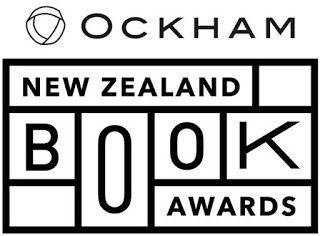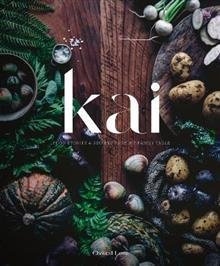Ockham New Zealand Book Awards — 2023 winners
The OCKHAM NEW ZEALAND BOOK AWARDS recognise some of the outstanding books published in Aotearoa in the last year.
Read what the judges have to say about the winners of each section, and then click through to secure your copies.
JANN MEDLICOTT ACORN PRIZE FOR FICTION
The Axeman’s Carnival by Catherine Chidgey (Te Herenga Waka University Press)
“The Axeman’s Carnival is a novel that has been clasped to New Zealanders’ hearts. It is narrated by the unforgettable Tama, a fledgling magpie taken in and raised by Marnie on the Te Waipounamu high country farm she shares with champion axeman husband Rob. Without anthropomorphism, Tama is constantly entertaining with his take on the foibles and dramas of his human companions. An underlying sense of dread is shot through with humour and humanity. Chidgey’s masterful writing explores the diversifying of rural life, the predicament of childlessness, the ageing champ, and domestic violence. She provides a perspicacious take on the invidious nature of social media and a refreshingly complex demonstration of feminist principle. The Axeman’s Carnival is unique: poetic, profound and a powerfully compelling read from start to finish.”
MARY AND PETER BIGGS AWARD FOR POETRY
Always Italicise: How to Write While Colonised by Alice Te Punga Somerville (Te Āti Awa, Taranaki) (Auckland University Press)
“Alice Te Punga Somerville’s collection, Always Italicise: How to Write While Colonised, voyages out like a waka seeking new ground, visiting four areas of life: language in ‘Reo’, identity in ‘Invisible Ink’, work in ‘Mahi’ and love in ‘Aroha’. Readers are challenged but crucially invited in to accept that challenge and reach a new understanding of what it is to be a Māori woman scholar, mother and wife in 2022, encountering and navigating uncomfortable and hostile spaces. Always Italicise shines for its finely crafted, poetically fluent and witty explorations of racism, colonisation, class, language and relationships. A fine collection, establishing and marking a new place to stand.”
BOOKSELLERS AOTEAROA NEW ZEALAND AWARD FOR ILLUSTRATED NON-FICTION
Jumping Sundays: The Rise and Fall of the Counterculture in Aotearoa New Zealand by Nick Bollinger (Auckland University Press)
“With its homage to the look and feel of a countercultural tract, Jumping Sundays is a triumph of production and design. The cover alone is one of the best of the year and signals the visual excellence that follows: vibrant endpapers, distinctive typography and bountiful images on an appropriately uncoated stock. Yet Jumping Sundays is more than just a well-designed book. Drawing on archival research and rich personal narratives, Nick Bollinger has written a compelling account of an epoch-making period, linking international trends to the local context in a purposeful-yet-playful way. A joy to read and to hold, Jumping Sundays is a fantastic example of scholarship, creativity and craft.”
GENERAL NON-FICTION AWARD
The English Text of the Treaty of Waitangi by Ned Fletcher (Bridget Williams Books)
“The English Text of the Treaty of Waitangi is a meticulously constructed work of scholarship that provides surprising and essential analysis of Te Tiriti. It will shift and inform debates about the intentions of those who constructed and signed the Treaty and how we interpret it today. Though it is weighty, Ned Fletcher’s book leads readers through a series of clear and well-evidenced hypotheses. It provides colourful and necessary detail about the characters and context involved in the creation of the English text of Aotearoa’s founding document. Fletcher’s comprehensive examination sheds new light on the document's implications and contributes fresh thinking to what remains a very live conversation for all of us that call this country home.”
BEST FIRST BOOK AWARDS
HUBERT CHURCH PRIZE FOR FICTION
Home Theatre by Anthony Lapwood (Ngāti Ranginui, Ngāi Te Rangi, Ngāti Whakaue, Pākehā) (Te Herenga Waka University Press)
“Home Theatre, a collection of interlinked short stories, is unfailingly inventive. Narratives move between the twentieth and twenty-first century, with strong characterisation and genuine voice. The stories are humane and warm at the same time as being cerebral and challenging. Anthony Lapwood writes skilfully in all genres, ranging smoothly from domestic stories to science fiction to love stories to historical fiction, and sometimes all four at once. He demonstrates a keen interest in technology, both contemporary and of the past. Lapwood’s writing is sophisticated and of great promise.”
JESSIE MACKAY PRIZE FOR POETRY
We’re All Made of Lightning by Khadro Mohamed (We Are Babies Press, Tender Press)
“Khadro Mohamed’s We’re All Made of Lightning takes us to distant lands, Egypt and Somalia, in heightened sensory language as she grieves for her homeland. Heart-breaking vulnerability and anger are revealed after a man had taken a knife and sliced straight through the sky on the March 15 attacks. Time, memory, dreams and reality are fluid and woven into lyrical poems and prose poems that consider what she would take if she were to go back to where she came from.”
JUDITH BINNEY PRIZE FOR ILLUSTRATED NON-FICTION
Kai: Food Stories & Recipes from my Family Table by Christall Lowe (Bateman Books)
“Kai has everything you’d expect from an internationally recognised food photographer: elegant and enticing images, topped with well-placed illustrations and the compelling use of colour. But it is the substance of the book that shines. Whānau stories and recipes provide the reader with a wider insight into te ao Māori, creating a homage to food that is both grounded in tradition yet modern. Kai is the Edmonds cookbook for our time.”
E.H. MCCORMICK PRIZE FOR GENERAL NON-FICTION
Grand: Becoming my Mother’s Daughter by Noelle McCarthy (Penguin Random House)
“This exquisite debut masterfully weaves together the threads of Noelle McCarthy’s life, and her relationship with her mother, in a memoir that connects with truths that unite us all. Poignant and poetic language renders scenes with honesty and colour. Intimate, but highly accessible, the fragility and turbulence of the mother-daughter relationship is at times brutally detailed. Despite this, Grand is an uplifting memoir, delicate and self-aware, and a credit to McCarthy’s generosity and literary deftness.”









